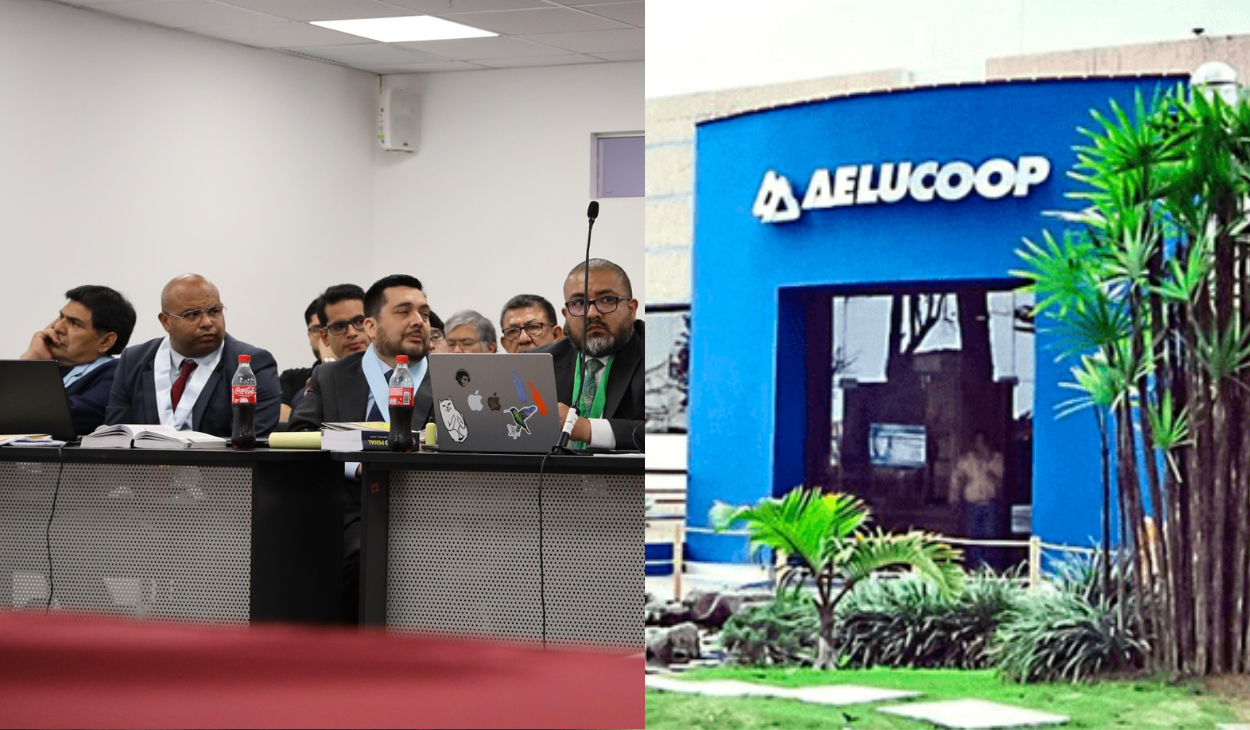The Judiciary ordered the release of 11 people investigated for the alleged fraud in the Aelu Cooperative. The decision of Judge Raúl Justiniano Romero came with the application of Law 32181enacted by Congress, which repeals preliminary detention.
“Law 32181published on December 11, 2024 and in force since December 12, with which article 261, paragraph 1, literal A, of the Constitutional Penal Code is repealed, in the extreme of preliminary detention. (…) To the not exist The institution of preliminary detention could not, consequently, be applied or executed, having already been excluded from our legal system, by the Congress of the Republic, and endorsed by the president of the Republic“said Judge Raúl Justiniano Romero during the hearing.
YOU CAN SEE: Congress: the 94 parliamentarians who with their vote allowed the release of “The Green Hyenas”
The defendants were arrested on November 30 and face charges for allegedly granting fraudulent credits to the detriment of the Aelu Cooperative and its partners, which amount to more than 410 million soles and more than 79 million dollars, and will now continue their investigation process in freedom.
What is the AeluCoop case about?
The Aelucoop case involves an alleged criminal organization within the AELU Savings and Credit Cooperative, in which officials, directors and partners would have facilitated the granting of fraudulent credits between 2009 and 2021. This fraud would have seriously affected more than 20 thousand members, with an estimated economic loss of more than 700 million soles and 79 million dollars.
Those involved are being investigated for crimes such as criminal organization and financing through fraudulent information. Among those detained are Pedro Eduardo Miyasato Arakaki and Miguel Ruyer Zevallos Hatakaeda, the latter identified as the alleged leader of the network.
YOU CAN SEE: Congress reverses course and approves the restitution of preliminary detention in cases of flagrancy
The Supraprovincial Prosecutor’s Office Against Organized Crime is in charge of the investigations and has requested preventive detention for several of those involved, including Zevallos Hatakaeda. The Eighth Preparatory Investigation Court, under the direction of Judge Raúl Justiniano, carries out the hearing session that began on December 14 and in which it will seek to clarify the total scope of the alleged fraud network and the individual responsibilities within of the cooperative.
What happened to the preliminary arrest?
When Law 32181 was enacted, the section that allowed preliminary detention in cases of non-flagranta measure that had been a key tool in the fight against organized crime and corruption. This provision allowed prosecutors to request the arrest of a person before they were formally charged, even if they had not been caught in the criminal act, as long as there was sufficient evidence that the individual had committed a serious crime.
However, after this Congressional reform came into effect on December 12, it now prevents preliminary detention from being issued to someone under investigation unless there is flagrante delicto, which limits the possibilities of action quickly against certain crimes that, by their nature, are not committed immediately, such as organized crime.
YOU CAN SEE: Government and Congress bring down preliminary detention in cases of flagrante delicto
In the last session of the Plenary Session of Congress, which ended after midnight on December 14, an attempt was made to reverse this situation despite the fact that it was the same parliamentarians who – in previous sessions – approved it. With 79 votes in favor, an alternative text to bill 9733 was approvedwhich restores the possibility of preliminary detention in cases of non-flagrant. With this, judges must support their decision with reasonable elements that demonstrate that the accused has committed a crime punishable by more than four years in prison.















